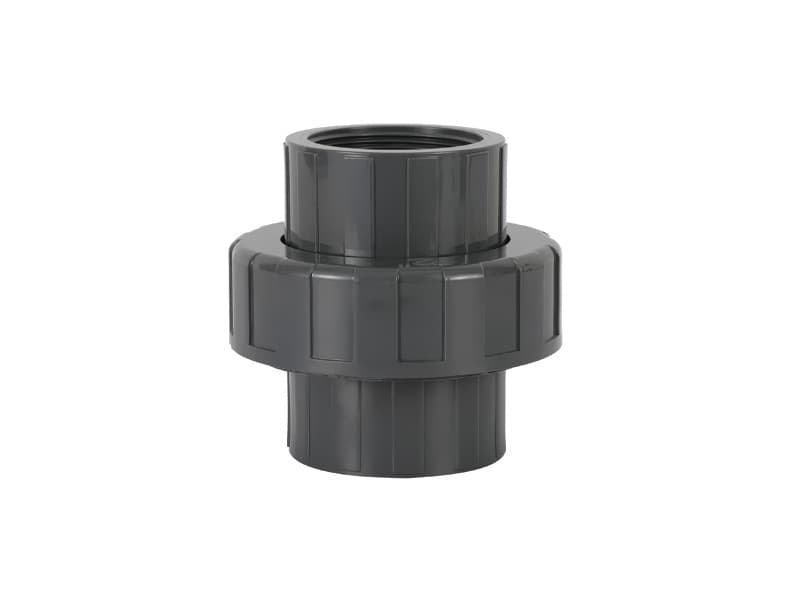What is PVC union?
When it comes to plumbing systems, the importance of reliable and efficient connections cannot be overstated. In this regard, PVC unions have emerged as a popular choice for professionals and homeowners alike. A PVC union is a specific type of plumbing fitting that provides a detachable joint between two pipes, allowing for easy installation, maintenance, and repair. This article explores the features, benefits, and common applications of PVC unions in modern plumbing systems.
Understanding PVC Unions
A PVC union is a coupling device designed to connect two pipes or fittings securely while still allowing for their separation when necessary. It consists of three main components: a socket end, a threaded end, and a nut. The socket end of the union is designed to fit over the outside diameter of a PVC pipe, while the threaded end features internal threads that match those of the corresponding pipe or fitting. The nut, placed between the socket and threaded ends, is used to tighten the union and create a leak-free seal.

PVC UNION
Benefits of PVC Unions
- Easy Installation and Maintenance: PVC unions are extremely convenient for installations and repairs that require frequent disconnections. The detachable nature of the union allows for simple and quick assembly or disassembly, saving time and effort.
- Leak-Free Connections: The threaded design of PVC unions ensures a secure and tight connection, minimizing the risk of leaks. The use of a rubber gasket or O-ring within the union helps create a reliable seal, even under varying pressure conditions.
- Flexibility and Adaptability: PVC unions are available in a wide range of sizes, allowing for easy adaptation to different pipe diameters and configurations. This versatility makes them suitable for various plumbing applications.
- Cost-Effective Solution: PVC unions are generally more affordable than alternative piping systems, such as metal unions or soldered connections. The cost-effectiveness of PVC unions, combined with their durability, makes them a popular choice for both residential and commercial plumbing projects.
Applications of PVC Unions
PVC unions find applications in a wide range of plumbing systems, including:
- Residential Plumbing: PVC unions are commonly used in residential plumbing for connecting pipes in areas such as kitchens, bathrooms, and utility rooms. They facilitate easy maintenance and repair of fixtures like sinks, toilets, showers, and bathtubs.
- Irrigation Systems: PVC unions are ideal for connecting pipes in irrigation systems, allowing for easy removal or replacement of sprinkler heads, valves, and other components.
- Swimming Pool Plumbing: PVC unions play a crucial role in swimming pool plumbing systems. They enable the installation and maintenance of pool pumps, filters, heaters, and other equipment.
- Industrial Applications: PVC unions are widely used in industrial plumbing systems, including factories, processing plants, and manufacturing facilities. They are suitable for connecting pipes in chemical processing, waste management, and water treatment applications.
- HVAC Systems: PVC unions are also utilized in heating, ventilation, and air conditioning (HVAC) systems, allowing for straightforward installation, repair, and replacement of components such as air handlers, ductwork, and condensers.
Conclusion
PVC unions offer numerous advantages in plumbing systems, providing secure connections, easy installation, and maintenance. Their versatility and adaptability make them a popular choice for both residential and commercial applications. Whether you’re a homeowner tackling a DIY plumbing project or a professional plumber looking for reliable fittings, PVC unions are a reliable and cost-effective solution for your plumbing needs.
